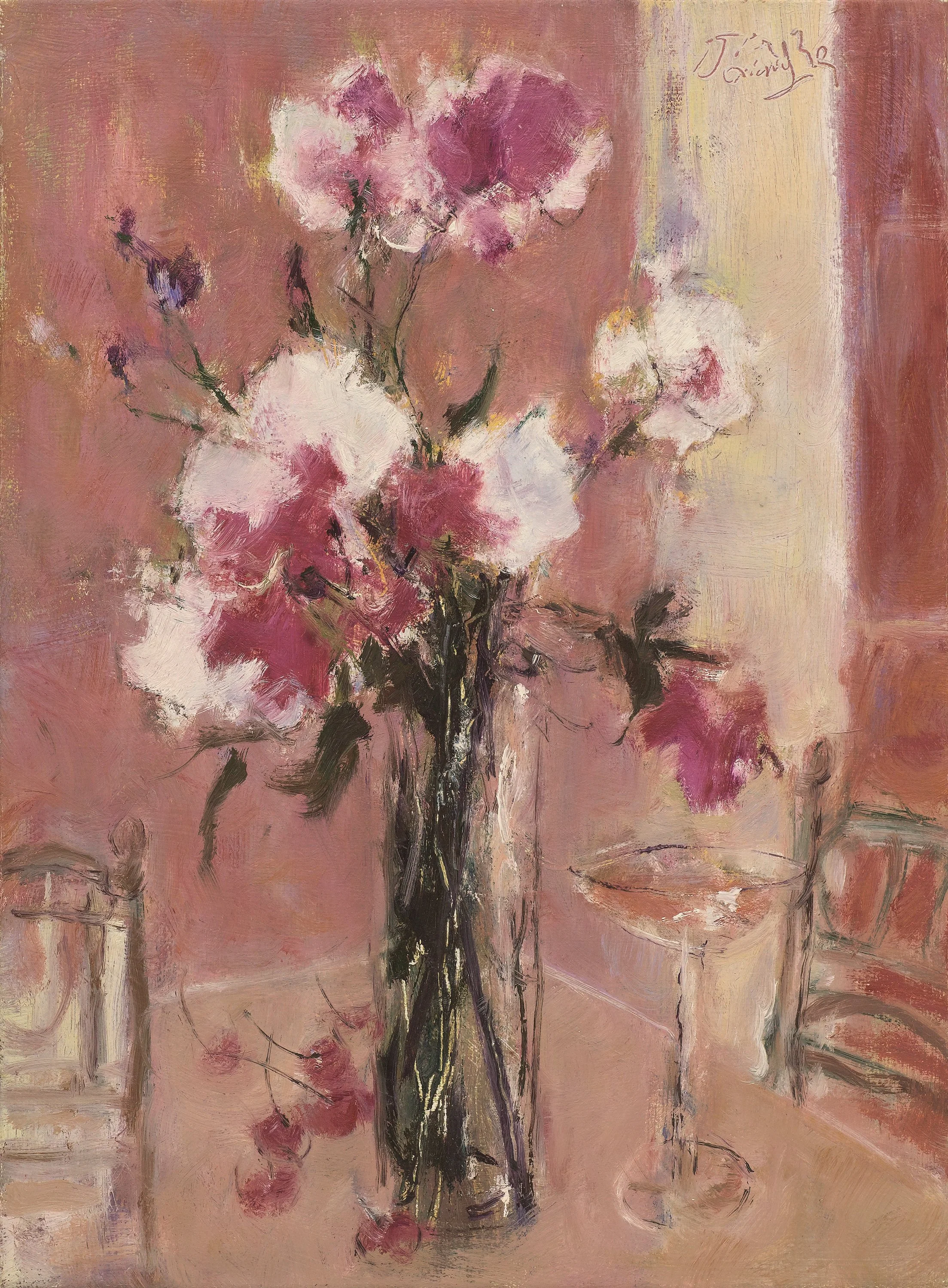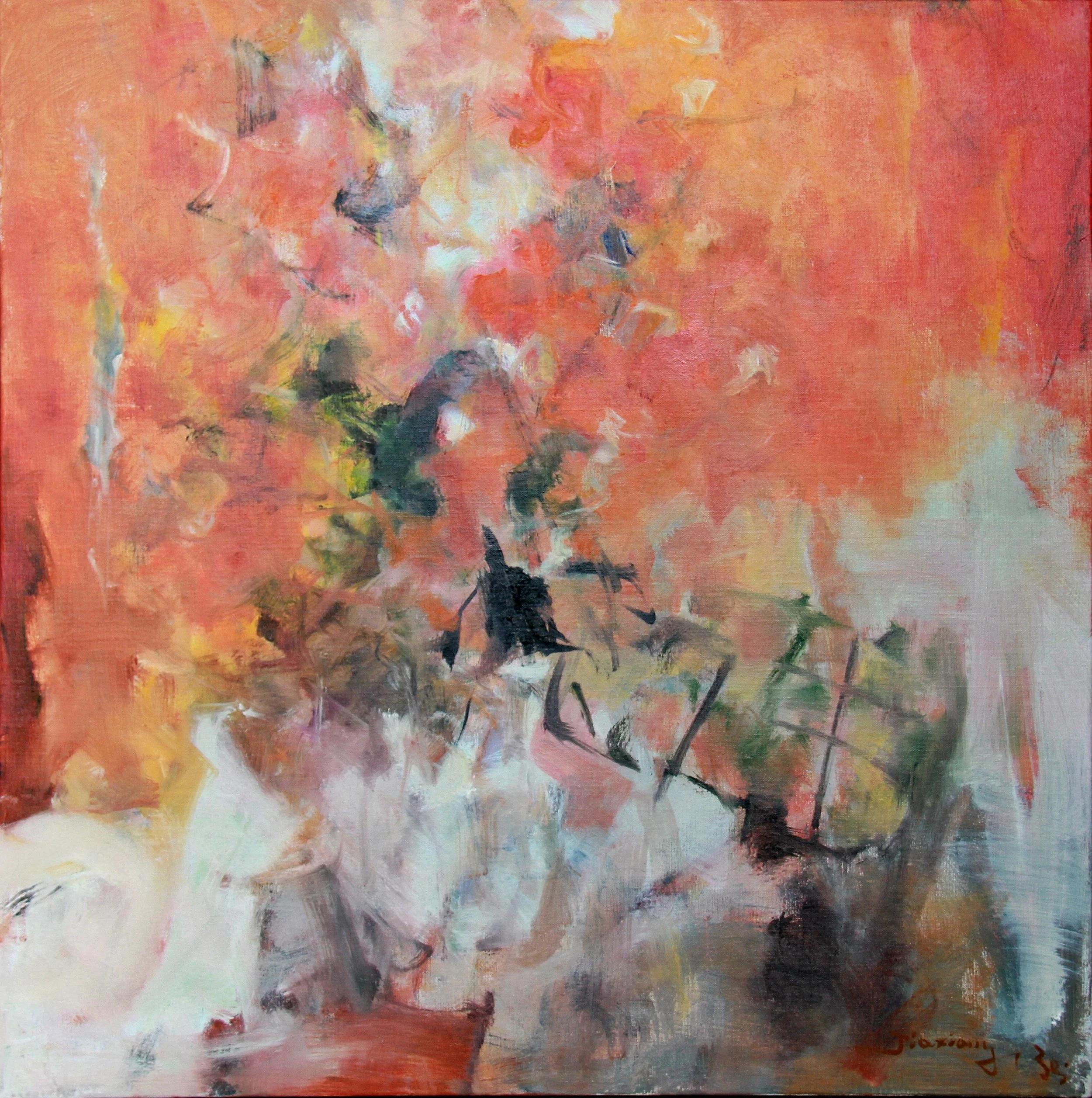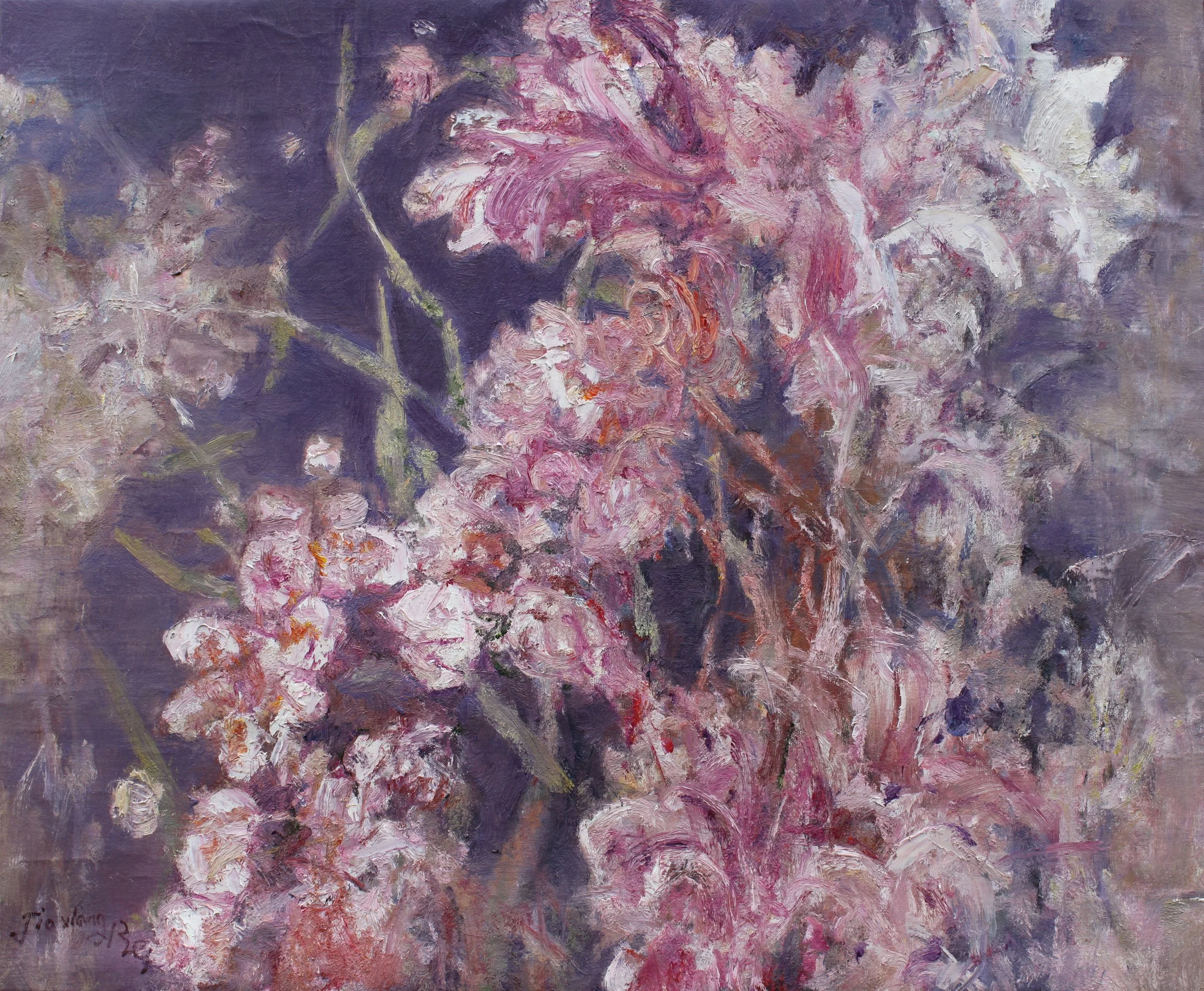
Within the petals, a universe in miniature.
"To see a world in a grain of sand, and a heaven in a wild flower."
—William Blake
-

Little Gathering (Collected)
Oil on Canvas
33×46 cm
2015
-

Petite Fleur 01
Oil on Canvas
24×33 cm
2015
-

Petite Fleur 02
Oil on Canvas
24×33 cm
2015
-

Autumn Fascination (Collected)
Oil on Canvas
41×53 cm
2015
-

Hush
Oil on Canvas
38×45 cm
2015
-

Fragrance (Collected)
Oil on Canvas
91×116 cm
2015
-

Leisure Hours (Collected)
Oil on Canvas
34×45 cm
2017
-
Opulent (Collected)
Oil on Canvas
74×62 cm
2015
-
Unfolding
Oil on Canvas
75×62 cm
2015
-

Elegant Aura
Oil on Canvas
28×41 cm
2017
-

Pink Hue (Collected)
Oil on Canvas
46×61 cm
2014
-

Dancing Sway
Oil on Canvas
41×52 cm
2017
-

Mulberry Afterglow (Collected)
Oil on Canvas
61×73 cm
2015
-

Champagne
Oil on Canvas
50×60 cm
2017
-

Blossom 01
Oil on Canvas
108×108 cm
2016
-

Blossom 02
Oil on Canvas
108×108 cm
2016
-

Blossom 03
Oil on Canvas
108×108 cm
2016
-

Floral Melody C
Oil on Canvas
75×75 cm
2018
-

Floral Melody D
Oil on Canvas
75×75 cm
2018
-

Floral Melody E
Oil on Canvas
75×75 cm
2018
-

Floral Melody F
Oil on Canvas
75×75 cm
2018
-

Floral Melody G
Oil on Canvas
75×75 cm
2018
-

Floral Melody A (Collected)
Oil on Canvas
75×75 cm
2018
-

Floral Melody B
Oil on Canvas
75×75 cm
2018
-

Floral Melody #C (Collected)
Oil on Canvas
75×75 cm
2018
-

Floral Melody #D (Collected)
Oil on Canvas
75×75 cm
2018
-

Floral Melody #F
Oil on Canvas
75×75 cm
2018
-

Floral Melody #G
Oil on Canvas
75×75 cm
2018
-

Floral Melody #A
Oil on Canvas
75×75 cm
2018

Artwork Interpretation
the Statical Bloom
BEI Jiaxiang’s Floral series transcends the traditional confines of still life painting, establishing a delicate balance between the richness of oil paint and the lightness of ink wash. The flowers depicted are never aimed at precise botanical accuracy; instead, he employs expressive brushwork to capture the fleeting tremors of life—petal contours are softened, and the lines of branches and leaves appear almost torn under the dragging of the palette knife, while colours diffuse across a greyish tonal base to create a hazy luminous effect. This treatment continues the Western Impressionist sensitivity to light and colour, yet through the Eastern aesthetic of “abstracting to essence,” it distils objects into a breathing rhythm.
In BEI’s hands, flowers also serve as metaphors for the state of life itself. He deliberately diminishes the individual characteristics of each bloom, blurring the boundaries between species, thus shifting focus toward the coexistence of decay and flourishing. Nearby withering brown leaves, new shoots in lemon yellow burst through the thick oil paint, akin to the stubborn echo of life under the crushing weight of time—this conveys BEI’s intense and passionate emotional engagement with vitality. Additionally, his reinvention of the blank space in the background of these floral works is noteworthy: this emptiness is not inert but is softly illuminated by scraping away with a palette knife, dragging delicate, sparking fragments reminiscent of pearl, infusing the intangible space with a warm lustre akin to jade and stone.
The true power of this series lies in this dual return to authenticity—both a technical transcendence of the materiality of oil paint and a spiritual interpretation of the “transient nature of splendour” rooted in Eastern philosophy. With their unfinished strokes and clashing layers of colour, BEI Jiaxiang’s flowers unperturbedly reveal the fragility and resilience of life. Those vibrant, twisting lines struggling amid greyish tones on the canvas draw the viewer’s gaze from the petals to the universe, from fleeting moments to eternity, bridging the ephemeral and the everlasting.




